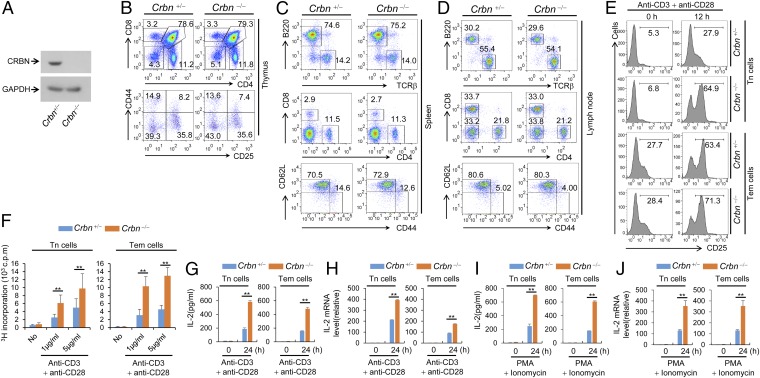Fig. 1.
CRBN deficiency does not affect T-cell development, but does increase T-cell activation. (A) Loss of CRBN protein expression in CD4+ T cells from Crbn−/− mice was confirmed by immunoblot analysis with an anti-CRBN antibody. (B) T-cell development in the thymus was analyzed by flow cytometry. (C and D) Lymphocytes in the spleen (C) and lymph nodes (D) were analyzed by flow cytometry. (E) CD4+ Tn and Tem cells from Crbn−/− mice and Crbn+/− mice were stimulated with anti-CD3 and anti-CD28 antibodies for the indicated times, after which cell surface expression of CD25 was analyzed by flow cytometry. (F) Proliferation of CD4+ Tn and Tem cells stimulated with anti-CD3 and anti-CD28 antibodies was measured by [3H]thymidine incorporation. (G–J) IL-2 secretion and IL-2 mRNA expression in CD4+ Tn and Tem cells stimulated by either anti-CD3 or anti-CD28 antibodies (G and H) or PMA and ionomycin (I and J) were analyzed by ELISA and quantitative RT-PCR. Data are representative of two (A), four (B–D), or three (E–J) independent experiments. Results are expressed as the mean ± SD. *P < 0.05; **P < 0.01, unpaired two-tailed Student’s t test.

